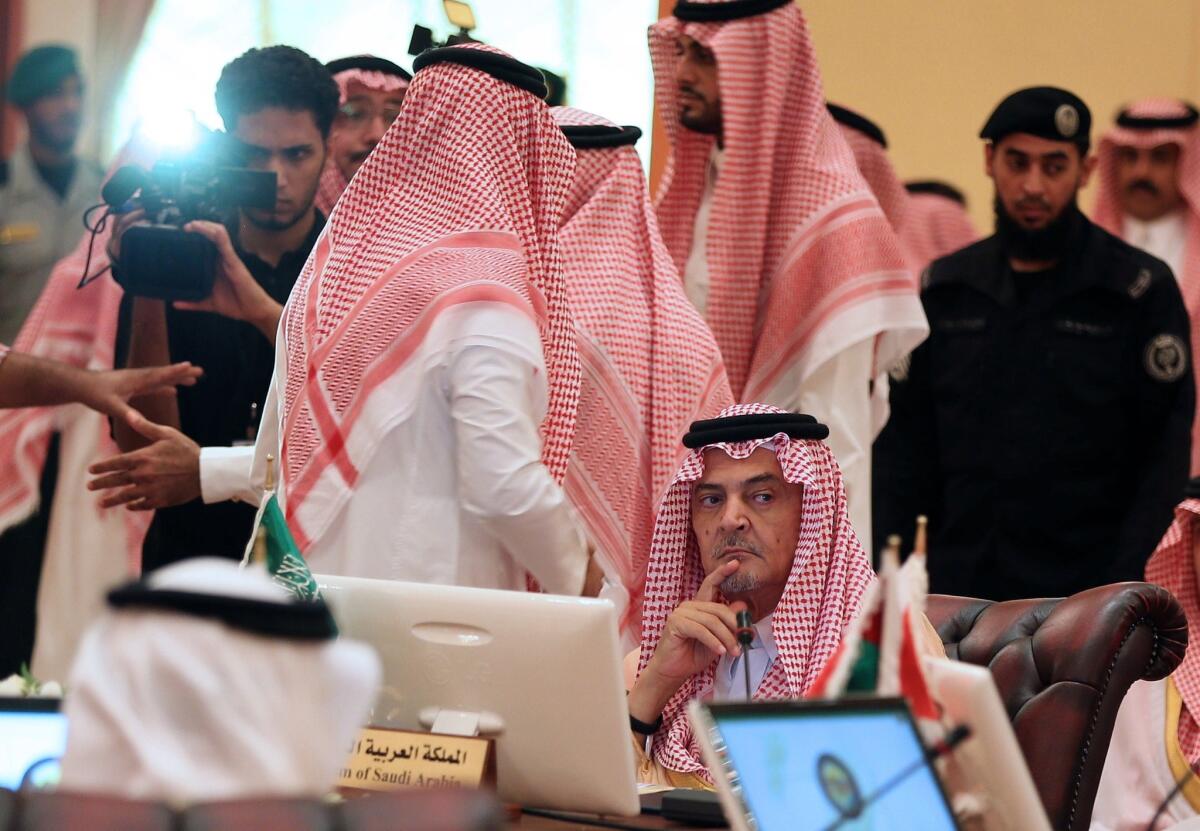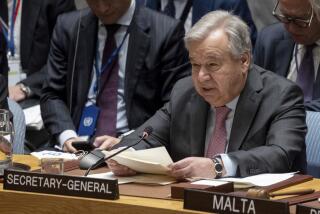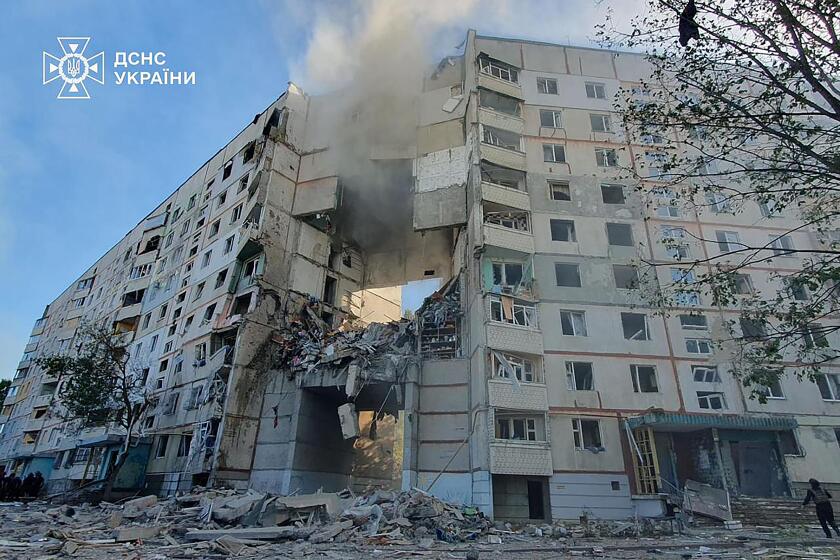Saudi Arabia rejects Security Council seat, lashes U.N. as failure

A day after the United Nations elected Saudi Arabia to a prestigious seat on the Security Council, the Saudi leadership refused to accept the position and lashed out at the world body for “double standards” and failure to protect peace.
It was a stunning and unprecedented rebuke of the U.N. Security Council, diplomats and academics said, especially after the recent breakthrough in getting the unanimous approval of the 15-member council on a plan to rid Syria of its chemical weapons.
The Saudi ambassador to the United Nations, Abdallah al Mouallimi, on Thursday hailed Riyadh’s election to a two-year stint on the Security Council as recognition of the country’s “long-standing policy in support of moderation and in support of resolving disputes by peaceful means.”
But on Friday, the Saudi Foreign Ministry announced that it was rejecting the seat and issued a bitter denunciation of the council’s failure over 65 years to resolve the Israeli-Palestinian conflict and its refusal to ensure a Middle East free of weapons of mass destruction, an apparent reference to Israel, widely believed to have a nuclear arsenal.
“Allowing the ruling regime in Syria to kill and burn its people by the chemical weapons, while the world stands idly, without applying deterrent sanctions against the Damascus regime, is also irrefutable evidence and proof of the inability of the Security Council to carry out its duties and responsibilities,” the Foreign Ministry said in a statement carried by the official Saudi Press Agency.
“Saudi Arabia believes that the manner, the mechanisms of action and double standards existing in the Security Council prevent it from performing its duties and assuming its responsibilities towards preserving international peace and security as required, leading to the continued disruption of peace and security, the expansion of the injustices against the peoples, the violation of rights and the spread of conflicts and wars around the world,” the government said.
U.N. Secretary-General Ban Ki-moon told reporters at the world body’s New York headquarters that he had “taken note” of news reports of the Saudi rejection but had not received any official notification from Riyadh.
The sharp change in Saudi Arabia’s posture toward the U.N. overnight led political analysts to speculate about divisions within the kingdom’s leadership. In recent years, the government in Riyadh has been aligned with the United States in fighting terrorism and containing Iran, but it may fear its authority is waning as Washington and Tehran work to improve relations.
“What an extraordinary outburst from the Saudi government against the U.N. Security Council,” said William Keylor, a professor of history and international relations at Boston University. “I can only imagine that it reflects some kind of power struggle within the Saudi leadership. The way it was done, in a really quite strong denunciation of the Security Council, as far as I can recall is unprecedented.”
Although the Saudi statement didn’t directly address the nuclear talks resumed this week between Iran and six major powers, including the United States, “Iran is the big elephant in the room, as far as the Saudis are concerned,” Keylor said.
The regional conflict between Sunni and Shiite Muslims puts Saudi Arabia and other Sunni-ruled Gulf states on the side of Syrian rebels fighting the government of President Bashar Assad, while Shiite Iran has been a key arms supplier and backer of the Damascus government.
“The United Nations has no role to play in that, and yet the Saudis lash out at the U.N. for failing to intervene,” Keylor said, surmising that the Saudi rant was actually criticism aimed at the United States for its reluctance to more effectively support Assad opponents in the 2 1/2-year-old Syrian civil war.
Although surprised, human rights advpcates welcomed Riyadh’s rejection of the Security Council seat.
“A country whose legal system routinely lashes women rape victims rather than punish the perpetrators never belonged in the U.N. Security Council in the first place,” said Hillel Neuer, executive director of Geneva-based U.N. Watch, an independent monitor of U.N. adherence to development goals and values.
Neuer dismissed the Saudi accusation that the world body imposes double standards, noting the kingdom’s treatment of Christians and homosexuals, the latter subject to the death penalty for the “crime” of their sexual orientation.
U.N. Watch urged Riyadh to follow up on its rejection of the Security Council seat by withdrawing its candidacy in next month’s elections to the U.N. Human Rights Council, calling the Saudi bid “the height of hypocrisy.”
ALSO:
Egyptians irked by official bid to curb protests
Iranian convict survives hanging, faces second attempt
Indians arrest 35 aboard U.S.-owned vessel reportedly carrying weapons
Twitter: @cjwilliamslat
More to Read
Sign up for Essential California
The most important California stories and recommendations in your inbox every morning.
You may occasionally receive promotional content from the Los Angeles Times.










